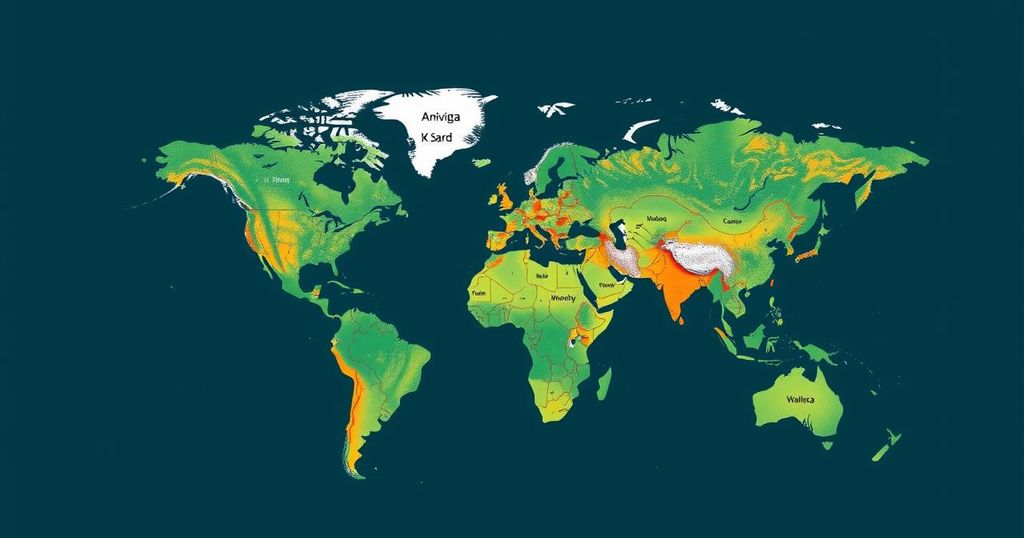The International Court of Justice is examining the legal obligations of major polluting countries regarding climate change, following complaints from small island nations about insufficient support from wealthier nations during COP29. Nearly 100 countries are participating in the hearings, highlighting the urgent need for accountability in climate action.
The International Court of Justice (ICJ) in The Hague is currently addressing the pressing issue of climate change, as small island nations express discontent with the outcomes of recent global climate discussions. The hearings began with oral arguments from nearly 100 countries, focusing on the legal responsibilities major polluting nations bear in combating climate change and the repercussions of their inaction. This judicial inquiry follows the conclusion of COP29 in Azerbaijan, where commitments were made by wealthier nations to support poorer countries financially but were criticized for their insufficiency and lack of decisive actions against climate change drivers.
The international climate negotiations have been fraught with challenges, particularly for developing nations that feel marginalized in the decision-making process. At COP29, held in Azerbaijan, a commitment was made by wealthier nations to deliver $300 billion annually by 2035 to assist poorer countries in mitigating climate impacts. However, dissatisfaction arose regarding the adequacy of this financial pledge and the absence of a commitment to strengthen international efforts against the underlying causes of global warming, highlighting the need for legal clarifications on climate obligations.
The proceedings at the ICJ mark a pivotal moment for global climate action, particularly for small island nations seeking justice and accountability. As nearly 100 nations contribute to the discussions about the legal ramifications of inaction on climate change, the future of international environmental obligations remains uncertain, amidst criticism of recent climate agreements. This case may provide a critical avenue for addressing and redefining responsibilities among major polluters.
Original Source: www.eenews.net







